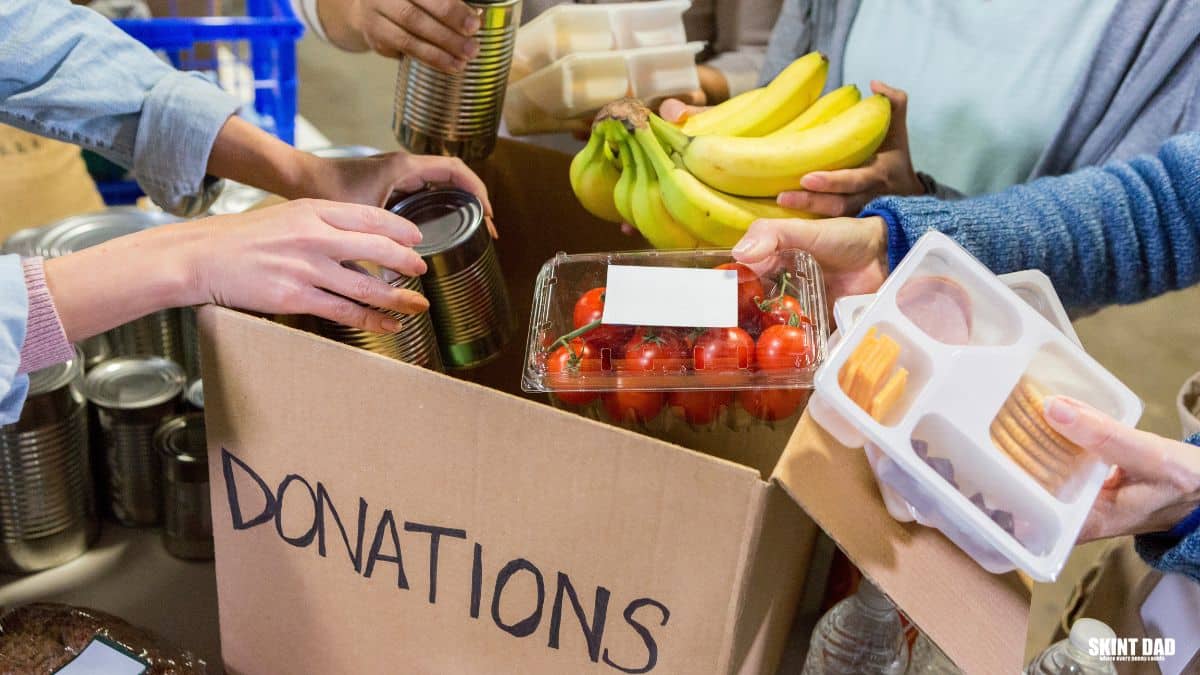More families across the UK are being forced to make impossible choices between heating, travel, bills, and putting food on the table.

Research from the Trussell Trust has revealed that more than 14 million people faced the risk of hunger last year because they simply could not afford enough to eat.
That’s up from 11.6 million in 2022, showing how quickly the problem is growing.
Get a free £10 bonus with Swagbucks
Earn a bit of extra money in your spare time with surveys, videos, and simple tasks you can do at home.
New users can get a £10 bonus when they sign up.
Get the £10 bonus
Children growing up hungry
One of the most worrying findings is that a third of children under five now live in homes where there isn’t enough access to healthy and nutritious food.
In total, one in four children in the UK are classed as living in “food insecure” households.
Helen Barnard, director at the Trussell Trust, explained that parents are losing sleep worrying about school trips, new shoes, or how to keep the lights on, let alone how to put enough food on the table.
She said: “We have already created a generation of children who’ve never known life without food banks. That must change.”
If you are struggling to make food go further, apps like OLIO can help share surplus food in your community and cut waste.
Who is most at risk?
It’s not just those out of work. The survey found a rise in people turning to food banks even though they are working.
In 2022, around a quarter of households using food banks had at least one person in work. By 2024, that had risen to a third.
Those hit hardest are people in manual and service jobs, such as bus drivers and care workers, who often face long hours on low pay.
No one should have to choose between heating the house or feeding their kids. Food banks do incredible work, but they were never meant to replace a fair system that makes sure people can afford the basics. – Skint Dad
The harsh numbers
Households referred to food banks reported having just £104 left each week after paying for rent or mortgage. That money has to cover food, bills, transport, toiletries, and school costs.
To put that in perspective, it’s only 17% of what the average household in the UK has left after paying housing costs.
If you’re struggling with bills, our guide to what “in credit” and “in debit” mean on your energy bill can help make sense of statements, while our tips on saving money on energy bills show ways to cut costs without switching the heating off.
What the government says
The Department for Work and Pensions has responded by pointing to new policies, including extending free school meals, adding £1 billion to crisis support, and setting up a child poverty taskforce.
There are also plans to overhaul job centres and the welfare system.
Prime Minister Keir Starmer has previously pledged to tackle poverty and end the need for food banks, but campaigners warn urgent action is needed before the crisis worsens further.
The bigger picture
Food insecurity can mean anything from worrying about whether you’ll have enough food next week, to going whole days without eating.
It’s an issue that can be temporary or long-term, but the reality is that millions of people across the UK are now facing it daily.
The Trussell Trust argues that low incomes are the root cause of hunger in the UK.
Without better wages, stronger safety nets, and more affordable essentials, many families will remain stuck in a cycle where food banks become the norm rather than the exception.
Saved a few quid with our tips?
If Skint Dad has helped you spend less or feel more in control of your money, you can support the site with a small contribution.
- Side hustles and benefits in the UK: what you need to know - 8 January 2026
- Lloyds Bank switch deal: grab £250 plus Disney Plus for free - 6 January 2026
- Thinking of doing the Co-op freezer deal? Read this first - 6 January 2026
